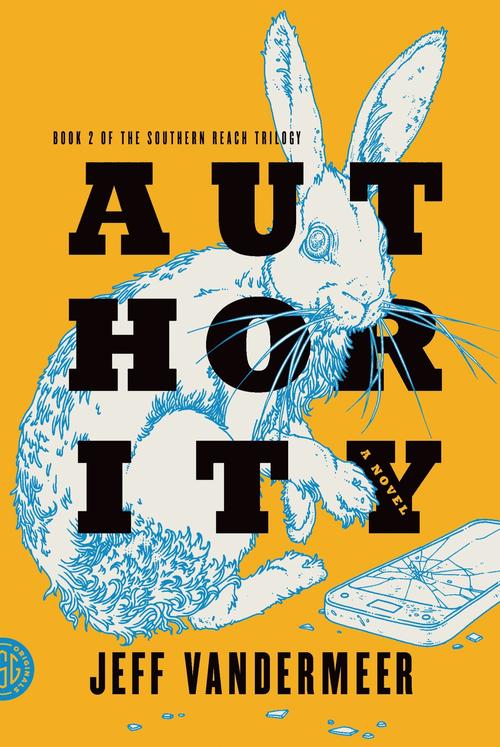From the author of Borne and Annihilation comes the one-volume hardcover reissue of his cult classic Ambergris Trilogy.
More than twenty years ago, Jeff VanderMeer first introduced the world to the fictional city of Ambergris, a beautiful and sinister sprawling metropolis populated by artists and thieves, composers and murderers, geniuses and madmen. Ambergris bristles with intellectual fervor and religious rivalries; it thrives on cultural upheaval, and its politics are never short on intrigue, conspiracy, and even terror. There are stories within stories, mystery, mayhem, and a dark history that threatens to consume the city itself as the gray caps, the mysterious and deadly mushroom people who once ruled Ambergris and have since been driven underground, now threaten to rise again.
Ultimately, the fate of Ambergris comes to lie in the hands of John Finch, a beleaguered detective with a murder on to solve and too many loyalties for one man to bear. The city is bursting at its seams, seemingly held together only by the tense, fraying tendrils of his investigation.
The Ambergris trilogy is made up of three novels, each of which has become a cult classic in its own right: City of Saints and Madmen, Shriek: An Afterword, and Finch. It is a marvelous, unparalleled feat of imagination. And yet the books themselves, as celebrated and influential as they have become, have a publishing history as arcane and elaborate as Ambergris itself. Over the years they have slipped in and out of print and have never before been available as a complete trilogy. Until now.
For fans both new and old of the work of Jeff VanderMeer, Ambergris is essential reading. Welcome to Ambergris. We can’t promise you’ll leave untransformed.
Digital, MCD × FSG, 2020
read an excerptDigital, MCD × FSG, 2020
read an excerptAn excerpt from Ambergris
Mushroom dwellers smelled of old, rotted barns and spoiled milk and vegetables mixed with the moistness of dark crevices and the dryness of day-dead dung beetles. Some folk said they whispered and plotted among themselves in a secret language so old that no one else, even in the far, far Occident, spoke it. Others said they came from the subterranean caves and tunnels below Ambergris, that they were escaped convicts who had gathered in the darkness and made their own singular religion and purpose, that they shunned the light because they were blind from their many years underground. And yet others, the poor and the undereducated, said that newts, golliwogs, slugs, and salamanders followed in their wake by land, while above bats, nighthawks, and whip-poor-wills flew, feasting on the insects that crawled around mushroom and mushroom dweller alike.
Mushroom dwellers slept on the streets by day, but came out at night to harvest the fungus that had grown in the cracks and shadows of graveyards during sunlit hours. Wherever they slept, they planted the red flags of warning, and woe to the man who, as Dradin had, disturbed their wet and lugubrious slumber. Sailors on the docks had told Dradin that the mushroom dwellers were known to rob graves for compost, or even murder tourists and use the flesh for their midnight crop. If no one questioned or policed them, it was because during the night they tended to the garbage and carcasses that littered Ambergris. By dawn the streets had been picked clean and lay shining and innocent under the sun. Fifty mushroom dwellers now spilled out from the alcove gateway, macabre in their very peacefulness and the even hum-thrum of their breath: stunted in growth, wrapped in robes the pale gray-green of a frog’s underbelly, their heads hidden by wide-brimmed gray felt hats that, like the hooded tops of their namesakes, covered them to the neck. Their necks were the only exposed part of them—incredibly long, pale necks; at rest, they did indeed resemble mushrooms.
And yet, to Dradin’s eye, they were disturbingly human rather than inhuman—a separate race, developing side by side, silent, invisible, chained to ritual—and the sight of them, on the same day that he had fallen so irrevocably in love, unnerved Dradin. He had already felt death upon him in the jungles and had known no fear, only pain, but here fear burrowed deep into his bones. Fear of death. Fear of the unknown. Fear of knowing death before he drank deeply of love. Morbidity and sullen curiosity mixed with dreams of isolation and desolation. All those obsessions of which the religious institute had supposedly cured him.
Positioned as he was, at the mouth of the alley, Dradin felt as though he were spying on a secret, forbidden world. Did they dream of giant mushrooms, gray caps agleam with the dark light of a midnight sun? Did they dream of a world lit only by the phosphorescent splendor of their charges? Dradin watched them for a moment longer and then, his pace considerably faster, made his way past the alley mouth.
Jeff VanderMeer












